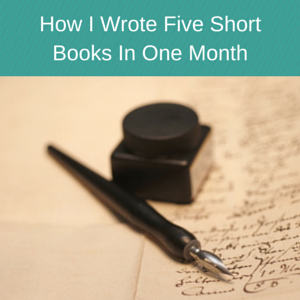
One benefit of scheduling dozens of blog posts in advance is that if I don’t write a blog post for an entire month, no one would ever know. While investing the time to create more Udemy courses and add more value to my older courses, I decided to write fewer blog posts. I only wrote three blog posts in one month, but if you look at my archives, you won’t see any three week absence.
I knew that no matter how many blog posts I scheduled at one time, I must continue writing blog posts or else this blog would eventually get outdated. After all of the time I committed to writing content for this blog, I wouldn’t want to see that happen, and I wouldn’t want to disappoint my visitors.
I never had any intent on giving up blogging. I just needed more time to create training courses. So, when I decided to return to writing blog posts at a consistent rate, I started off rusty. I wrote a few draft blog posts that I eventually proofread and got them back to my original standard. It was at this point when I asked myself how I could possibly get back into the writing flow so I could easily write blog posts and effortlessly provide value to my visitors. Here are the five things that will allow you to get into the writing flow.
#1: Create Outlines
Without question, this is the best way to get back into the writing flow. You must create outlines for your blog posts before you start writing them. When you create an outline for your blog post, the days of staring at your computer screen struggling to think of the next sentence will be over. I know that is a big promise, but I encourage you to give it a try. The more detailed my blog post’s outline is, the easier it is for me to write the entire blog post without stopping. If you know exactly what you are going to write about from start to finish, it will be easier for you to think of ways to enhance your content (instead of thinking about the content itself, you will think, “How can I make it better?”).
#2: Write Without Proofreading
When I write a draft, I never proofread it. When I am writing a blog post, I am in the moment, and proofreading while writing would dramatically slow down my level of productivity. By writing without stopping, I can think of ideas at a faster rate and not forget about any of the ideas I was thinking about. If I had to allocate some of my time towards proofreading as I wrote my blog posts, I would constantly forget the idea that I needed to write a blog post about. Of course, I never publish the draft as is. I proofread all of my blog posts at least once and will proofread some of them twice if I have some time left over. I only take the time to proofread my blog posts once I know I won’t be writing anything else for the rest of the day.
[tweetthis url=”http://bit.ly/1DJHLni”]Don’t proofread your #blog posts while you write them. Proofread them when you are done writing them.[/tweetthis]
#3: Write As Much As You Possibly Can
The more you do something, the better you get at it. Writing is no exception. It took me a while to get from struggling to write a 250 word blog post to easily writing a 1,000 word blog post. As you write more content, it will be easier for you to formulate your thoughts while you write. When I write a blog post, I don’t have a script in front of me that shows me what to write word for word. When I start to write blog posts that I properly outlined in advance, the rest of the words I type are on the fly. Just keep writing what you think about, but make sure it’s related to your blog post’s content. Don’t suddenly go on a rant about animals when your blog post is supposed to be about home design (unless you can connect the two together and talking about animals would be relevant).
#4: Read Books That You Enjoy
I know some people will feel some enthusiasm when they read this tip. Others will think, “Oh no, not books. I have to stay away from those.”
I believe that the people who don’t like reading books are the ones who haven’t read a good story in a while. There is a book out there for every person to read, regardless of how much a person claims that books are boring. When you read books that you enjoy, you get impacted on a mental level, and when you read books related to your niche, you learn more about that niche. More knowledge means more valuable blog posts which ultimately leads to returning visitors eager to buy your future products. If you are not willing to learn more about your niche by reading books, reading articles, and/or watching videos, then stop now. I know that sounds harsh, but the most successful individuals are the dedicated student-teachers. You better believe that the successful marketers making six-figure incomes from their training courses are reading book, reading articles, and watching videos to learn more about their respective niches.
You can only move so far with the knowledge you currently have, and to move further, you need to acquire more knowledge. All of this knowledge is also helpful for staying in the writing flow.
[tweetthis url=”http://bit.ly/1DJHLni”]The more you know about something, the easier it is for you to write #blog posts about it.[/tweetthis]
#5: Write In The Morning
Undoubtedly, the most productive time of my day is the morning, and that’s the same for most people on the planet. In the morning, I can write five blog posts (over 1,000 words each) without stopping. In the evening, it is difficult for me to write a single blog post. Part of the reason is that I run every day anywhere from 6-12 miles (if I run six miles or fewer, it’s in intervals, which aren’t easy either).
One day I came home from school at 6 pm, and I had to write a blog post. I also had homework to complete, and after completing the homework, I was too tired to write the blog post. Writing a blog post isn’t much of a physical activity (other than moving fingers across a keyboard), but when I feel tired after a workout, there are plenty of things I would want to do other than blogging. In the morning, I can effortlessly write blog posts, and not just because I didn’t run yet. The morning is a time when our willpower is at the highest and there are fewer distractions. Think of all of the things you do at 6 am compared to all of the things you do at 6 pm. Some people aren’t morning people, and if you fit that bracket, then create a routine that sticks with you, and then follow that routine. However, I believe there is a morning person inside of us all, so I encourage you to try waking up earlier and writing blog posts in the morning for a few days.
In Conclusion
Many people associate writer’s block with writing too much and then hitting a dead end, but you also encounter writer’s block if you don’t write for a long period of time. It is more difficult to formulate your thoughts and write in an effective manner. The best way to attack this problem is to attack it head on. Immediate action always solves a problem quicker than passively watching the problem grow worse.
Which tip was your favorite? Do you have any other tips for getting back into the writing flow? Please share your thoughts and advice below.




